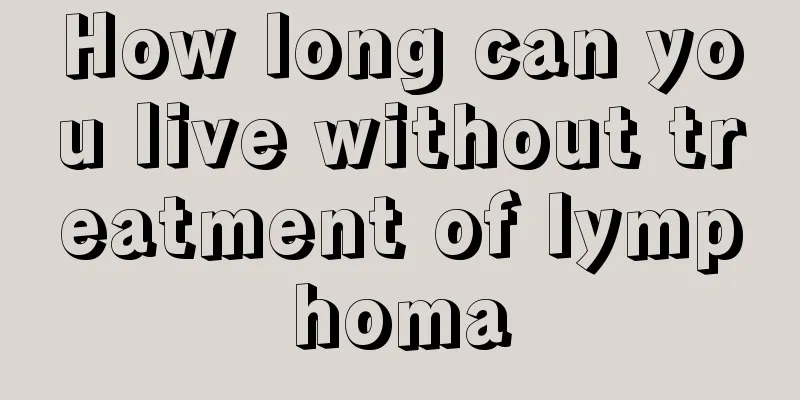What is the reason for choking when swallowing food

|
Many people have a feeling in their lives that when they swallow food, they feel a choking sensation in their throat, which is very uncomfortable. We need to be vigilant when facing this problem, because sometimes if there are some diseases, this symptom may also appear, such as the common early esophageal cancer, or mid-term esophageal cancer and late-stage esophageal cancer. The most obvious symptom is a feeling of food choking in the throat. 1. Early esophageal cancer Clinically, symptoms are often not obvious, and are mostly caused by local lesions stimulating abnormal esophageal motility or spasm, or by local inflammation, erosion, superficial ulcers, and tumor infiltration. They often recur, and the intervals may be asymptomatic and may last for several years. The main characteristic symptoms are discomfort behind the sternum or dysuria. The pain is burning, stabbing, or pulling and friction-like, especially when eating rough, overheated, or irritating foods. Food passes slowly with mild choking, and most progress is slow. Other rare symptoms include fullness behind the sternum and dryness and tightness in the throat. In 3% to 8% of cases, there is no feeling at all. 2. Mid-stage esophageal cancer The typical symptom is progressive dysphagia. Because the esophageal wall has good elasticity and expansion ability, the dysphagia symptom is not obvious when the cancer has not involved more than half of the circumference of the esophagus. The degree of dysphagia is related to the pathological type, with the constrictive and medullary types being more severe than other types. In about 10% of cases, symptoms or initial symptoms are not dysphagia, which accounts for 20% to 40% and causes delayed diagnosis of esophageal cancer. Some patients experience pain behind the sternum or between the shoulder blades when swallowing food. The location of the tumor suggests that there has been external invasion causing esophagitis, mediastinitis or deep esophageal ulcer. 3. Advanced esophageal cancer It is mostly caused by compression and complications, and may metastasize to the lymph nodes and blood vessels. If there is ulcer, inflammation or tumor invasion in the affected section of the esophagus, it will cause persistent dull pain behind the sternum or in the back. If the pain is severe and accompanied by fever, one should be alert to whether the tumor has perforated or is about to perforate. Cancerous lymph node metastasis is often behind the attachment of the sternocleidomastoid muscle above the clavicle, more often on the left side than on the right side. If the recurrent laryngeal nerve is compressed, hoarseness occurs; if the cervical sympathetic nerve is compressed, Horner syndrome occurs. Laryngitis caused by inhalation inflammation can also cause hoarseness, and indirect laryngoscopy can help to identify it. |
<<: What are the physical fitness categories?
>>: What causes fungal otitis externa?
Recommend
Can beer be used to soak feet?
Beer can not only be drunk but also used for foot...
There is white stuff in the belly button
It is well known that the navel is a very importa...
What are the effects and functions of postpartum HPV vaccine? Can postpartum HPV vaccine prevent cervical cancer?
Cervical cancer refers to a malignant tumor that ...
What to do with a halo nevus
Everyone has some moles on their body, and most m...
Ovarian tumors can be passed on to children through the father's sperm
When someone in the family has an ovarian tumor, ...
What are the specific signs of bile duct cancer
The occurrence of bile duct cancer brings physica...
Don't be stubborn and miss the best time for treatment
Lao Hu, who was in good health on weekdays, has n...
What are the early symptoms of lung cancer? If you have these three signs, be alert
Many people do not know that lung cancer has beco...
What is the shelf life of salted duck eggs
Eating duck eggs is a very traditional food custo...
Diet and gastric cancer are inseparable! Get rid of 4 bad habits
my country is a country with a high incidence of ...
How long does it take to treat mild hyperthyroidism
Many people have mild hyperthyroidism, although m...
Remedial measures for poor embryo development
If the embryo does not develop well, it may lead ...
What medicine is good for bone growth after a fracture?
Fractures are ubiquitous in life and can occur du...
Throat inflammation with thick phlegm
If the throat is inflamed and accompanied by thic...
What are the nursing methods for liver cancer? 5 effective nursing methods for liver cancer
The treatment of bitter melon in the folks is ver...









